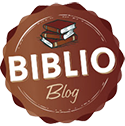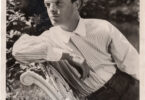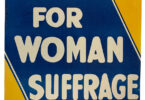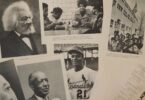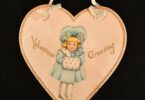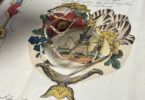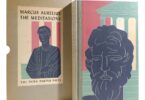While we make it sound easy, what can get difficult is the consideration of the collection – the time, the money, the care, and the maintenance of a book collection. Don’t despair, though – we’re here to help!

Start where you are. Use what you have. Do what you can.
— Arthur Ashe
If a book collection is simply a collection of books that reflects a unifying theme or interest, how do you start one?
When you curate a personal collection of books it is a deliberate act that reflects your personality and interests. It is a creative outlet for the deep and passionate side of you that is different from every other person on earth.
No pressure!
As you start to walk on the way, the way appears.
—Rumi.
It is said that there are two distinct ways to collect books: fast and expensive, and slow and cheap. If you have the money and know your interests well, you can partner with a bookseller who specializes in your theme to help source the titles you want.
The slow and steady method will earn you a lifetime of treasure-seeking fulfillment if you have more time than money. Included in this journey is the reward of gaining knowledge about the fascinating world of book collecting and further enlightenment about your personal interests and intelligence.

Time
You may delay, but time will not.
— Benjamin Franklin.
As iterated above, time is an important factor to consider when starting your book collection. Is your goal to fill the built-in bookcases in your new house in the next few months? Or to eventually collect a whole set of first-edition of the Oz books by L. Frank Baum over the course of your lifetime? Do you want to hunt at every yard sale, thrift shop, and used bookstore for fun, or get what you want now so you can sell it for a quick profit?
Consider how much time you would like to invest in your collection and if you want it to be complete or never-ending.

Money
When I have a little money, I buy books; and if I have any left, I buy food and clothes.
― Erasmus
For some, book collecting is a financial investment akin to putting money in a high-yield savings account or CD. The money is safe and the book will most likely appreciate (as long as it is kept in excellent condition), but it’s not likely to double in price in two years. Still, some collectors thrive on low-budget finds, amassing collections of mass-market paperbacks or small press titles that don’t go for more than the initial retail price (or, in some cases, much less if used).
Another way to collect is to buy everything you can get your hands on and sell it to purchase the specific items you want. If you are amassing titles to upgrade your library, you will need to know how to sell books, which is a different skill, but one that will help you gain knowledge in the book collecting field quickly through connections and experience.

Knowledge
You don’t have to be great to start, but you have to start to be great.
– Zig Ziglar
That brings us to knowledge. It should not be surprising that a hobby centered around books also centers around knowledge. Bibliophiles are an educated bunch and are drawn to the avocation because of its cultivated intricacies. To start, you can certainly get by with a few basics, and as with anything, learn as you go.
First – learn how to read book conditions, i.e., ‘Good‘ is not good. You don’t want to collect just ‘Good’ in almost all cases. You want ‘As New,’ or ‘Fine‘ – and be sure the original dust jacket (not a facsimile) is included in the sale! Unless you’re collecting true antiquarian books published before 1900, then none of this applies the same way. Beware of thinking that the older the book is, the more valuable it is – not all old books are desirable, rare, or valuable. Many books were published in the 1800s – yes, including an enormous amount of Bibles. Sorry.
You will also want to know how to identify a first edition and understand how a signature or inscription affects the value of a book (and what the difference is).
Again, these are just the basics to get your toes wet, but it is the best place to start. How do you gain more knowledge? Read books about book collecting, partner with knowledgeable booksellers, and look into associations that specialize in book collecting like the ABAA in the US, and ILAB worldwide.

Access to Books
Anyone who has a book collection and a garden wants for nothing.
– Cicero
What are your resources for sourcing books? Are you in a metropolitan area where you have access to great rare bookstores and can establish connections with dealers, or in a remote rural area with spotty internet and only USPS delivery? You may find hidden gems in thrift shops and garage sales at better prices in remote areas than in cities. In cities, you have access to book fairs and estate sales with much more glamorous offerings.
If you buy online, you will want to buy from a reputable site (like Biblio), so that if you receive something not as described, you are not stuck with it. Always feel free to ask booksellers for additional information on a book you are considering buying, including pictures.
Once you know what you are interested in collecting, you can start to buy and price books and gain experience to be confident that you’re finding the best deals on beautifully preserved items you are interested in acquiring for your collection.

Storage and Care of Collectible Books
The care and preservation of your collection is very important to consider. You will want a clean, relatively dry, and cool place to store your books away from direct sunlight and any risk of damp and extreme temperature change. Always handle your books with clean hands! Don’t lick your finger to turn pages, and keep food and drink far away. Don’t dog-ear the pages unless your collection is specifically intended to be dog-eared paperbacks. Books should be kept upright, supported on even shelves, and regularly dusted. Pull books from the middle of the spine, not the top, to remove them from the shelf. Only use approved book glue and tape to do any repairs.

Your Book Collecting Personality
I’ve had more honest satisfaction and happiness collecting books than anything else I’ve ever done in life.
― Peter Ruber, The Last Bookman
First and last, you want to know yourself and your goals. Do you want your collection to bring you closer to like-minded people, or do you want to enjoy it tucked away in your library, by yourself with a cup of tea, no other voice able to reach you as you fill your heart and mind with its glory?
There are two sides to the book collecting coin. They can be successfully intertwined if you have that sincere intention, but they do not need to be. One side of book collecting is focused on the passion, the love of books, and collecting just for your own interests. The other side is a business side – seeing books as investments and for their potential financial gain. Realize your intention behind wanting to collect books. Some people may collect books ‘for the money,’ but you can also collect what you love and not worry about value – because the real value is found within the pages.
How do I learn more?
Start by shopping our virtual book fair! Register to set your price range, currency, and username to chat with booksellers during the fair. Visit the buyer information page to learn more and get preregistered today!
Amy C. Manikowski is a writer living in Asheville, NC.
